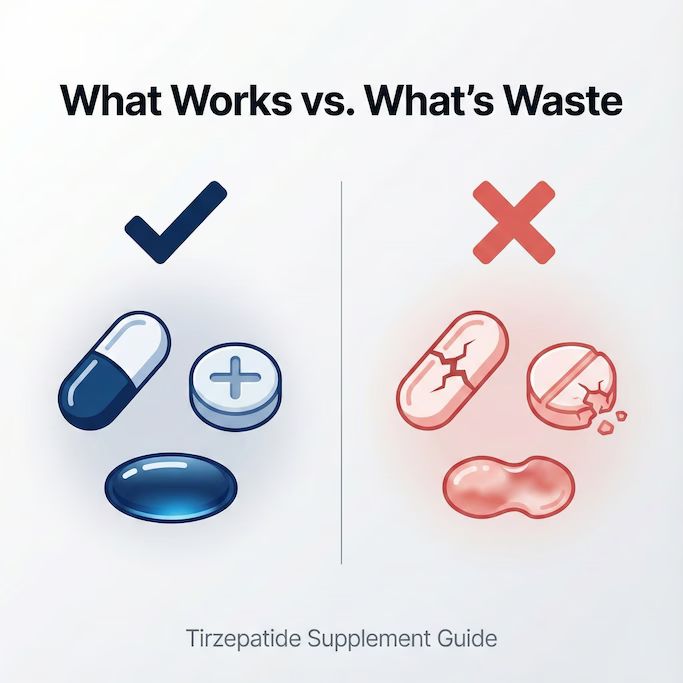Death, taxes, crying kids on long-haul flights — there are many things you can’t control, but you can control yourself.
Self-control isn’t always easy, but it’s a skill worth mastering if you care about your health, your career, and your happiness. Studies show that children who learn to control their impulses and delay gratification live longer, have better mental health as adults, and have fewer financial difficulties compared to their peers with low self-control. They’re also less likely to break the law.
But even if you couldn’t keep your hands off the cookie jar as a kid, it’s never too late to cultivate this crucial life skill. Like other executive functions such as memory, adaptability, and creative thinking, self-control can be improved with effort. You don’t have to rely on willpower either. We’ll share a few cheat codes on how to strengthen your self-control muscle and use it to reach your goals.
But first: What are the benefits of self-control?
Exercising self-control isn’t about denying yourself pleasure. Think about your favorite meal. The first time you eat it, the pleasure is undeniable. But if you had to eat the same thing every night for the next few weeks, or months, would you still find pleasure in it? Probably not.
Self-control requires you to limit or forego immediate pleasures so that you can enjoy greater rewards later. Often, these immediate “pleasures” are barriers in disguise. They keep you stuck in an addictive cycle of wanting-getting-wanting-getting, meanwhile sucking all the pleasure out of the experience and derailing you from your goals.
Whether it’s shoveling down a piece of cake, skipping the gym, or doom-scrolling for hours, failing to practice self-control may keep you from experiencing benefits like:
- Increased fitness: People with higher self-control are more likely to perform better at exercise and stick to their workout routines. Interestingly, a single moderate exercise effort has also been shown to improve self-control. Self-control is also associated with maintaining a healthy weight and lowering someone’s risk of heart disease, diabetes, stroke, and some cancers.
- More testosterone: Self-control can also influence your testosterone levels. Especially if self-control helps you maintain a solid exercise routine, follow a healthy diet, and refrain from habits like excessive alcohol use, which are known to wreck your T levels.
- Better sex and more fulfilling relationships: Self-control is considered an important factor in maintaining romantic relationships through promoting effective communication and forgiveness, and reducing the likelihood of infidelity. But it can also lead to better sex by helping you last longer in bed.
- Career success and increased wealth: People with high self-control tend to save more money and have less anxiety about their finances. Having a good handle on self-control may also lead to more successful careers and the development of better interpersonal skills.
- Balanced mood: Some research shows there’s a connection between self-control and mental health. Having low self-control is associated with higher anxiety. Not only that, but practicing self-control may shift your motivation and attention towards more positive emotions.
But how do you make self-control stick when it doesn’t come naturally to you? And what do you do in the face of temptation? Here are a few easy cheats:
Cheat code #1: Establish clear goals
What’s the point in practicing self-control if you’re not working towards something? Being more fit or having more money are great places to start, but try to get more specific. You are more likely to succeed if you establish a clear goal, like averaging 8,000 steps a day for a month or paying off credit card debt.
Cheat code #2: Track the habits holding you back
You can’t manage what you don’t measure. Screen time, junk food, cigarettes — start tracking your vices and how often you reach for them. Most mobile phones and tablets have a built-in feature to help you do this (as well as time limits to help you cut down), but there are many other apps and journals available for habit tracking purposes. Rather keep things simple? A notebook also works.
Cheat code #3: Know your triggers
It’s completely natural to impulsively reach for our “bad��” habits when we’re running from an uncomfortable feeling, whether it’s loneliness, boredom, or stress. Maybe a certain place or a person is your trigger. Practicing mindfulness can help create space between your triggers (the stimulus) and your impulsive behaviors (the response).
Cheat code #4: Ride your urges
Nearly any habit can become addictive, whether it’s reaching for your phone when you’re feeling bored or drinking too much when you’re feeling sad. Dr. Cam popularized the practice of dopamine fasting when he noticed that many of his clients were displaying addictive behaviors towards their digital devices. Every time they pulled out their phone or tablet and saw that red dot signifying a DM or new comment or juicy news story, they’d get that dopamine hit and reinforce the behavior.
While you can’t avoid screens altogether, you can teach yourself moderation and strengthen self-control by being open to the uncomfortable feelings driving your urges.
First, minimize temptations so they’re not as easily accessible. Spending too much time on your phone? Keep it in another room when you’re working, or install time limits. Overindulging in sugary treats? Stop buying them and stock your fridge with healthy alternatives.
Second, make an effort to feel your feelings. The next time you’re feeling bored, sad, or lonely and want to reach for a distraction, ride the urge instead. You’ll be surprised how quickly the boredom, sadness, loneliness, or other feelings of discomfort might fade away.
Dr. Cam’s Health Hack
Self-control is noble, but don’t let it turn you into a control freak. As Dr. Cam says:
“People who are the most controlling of others have the least self-control.
Lesson there.”
Some important takeaways:
- Self-control is an important skill that influences many areas of life, like health, career success, and overall happiness. Studies suggest that individuals with good self-control tend to lead longer, healthier lives and have better mental health and financial stability.
- Maintaining self-control through healthy habits like regular exercise and a balanced diet can positively impact testosterone levels, improve your sex life, and lower your risk of numerous diseases.
- You can cultivate self-control over time by tracking your impulsive behaviors, becoming aware of your triggers, and being open to the uncomfortable feelings that drive your urges.
Disclaimer: The contents of this article, including, but not limited to, text, graphics, images, and other information, is for information purposes only and does not constitute medical advice. The information contained herein is not a substitute for and should never be relied upon for professional medical advice. The content is not meant to be complete or exhaustive or to be applicable to any specific individual's medical condition. You should consult a licensed healthcare professional before starting any health protocol and seek the advice of your physician or other medical professional if you have questions or concerns about a medical condition. Always talk to your doctor about the risks and benefits of any treatment. Never disregard or delay seeking professional medical advice or treatment because of something you have read on this site. Maximus does not recommend, endorse, or make any representation about the efficacy, appropriateness, or suitability of any specific test, products, procedures, treatments, services, opinions, healthcare providers or other information contained herein. Maximus is not responsible for, nor will they bear any liability for, the content provided herein or any actions or outcomes resulting from or related to its use.










